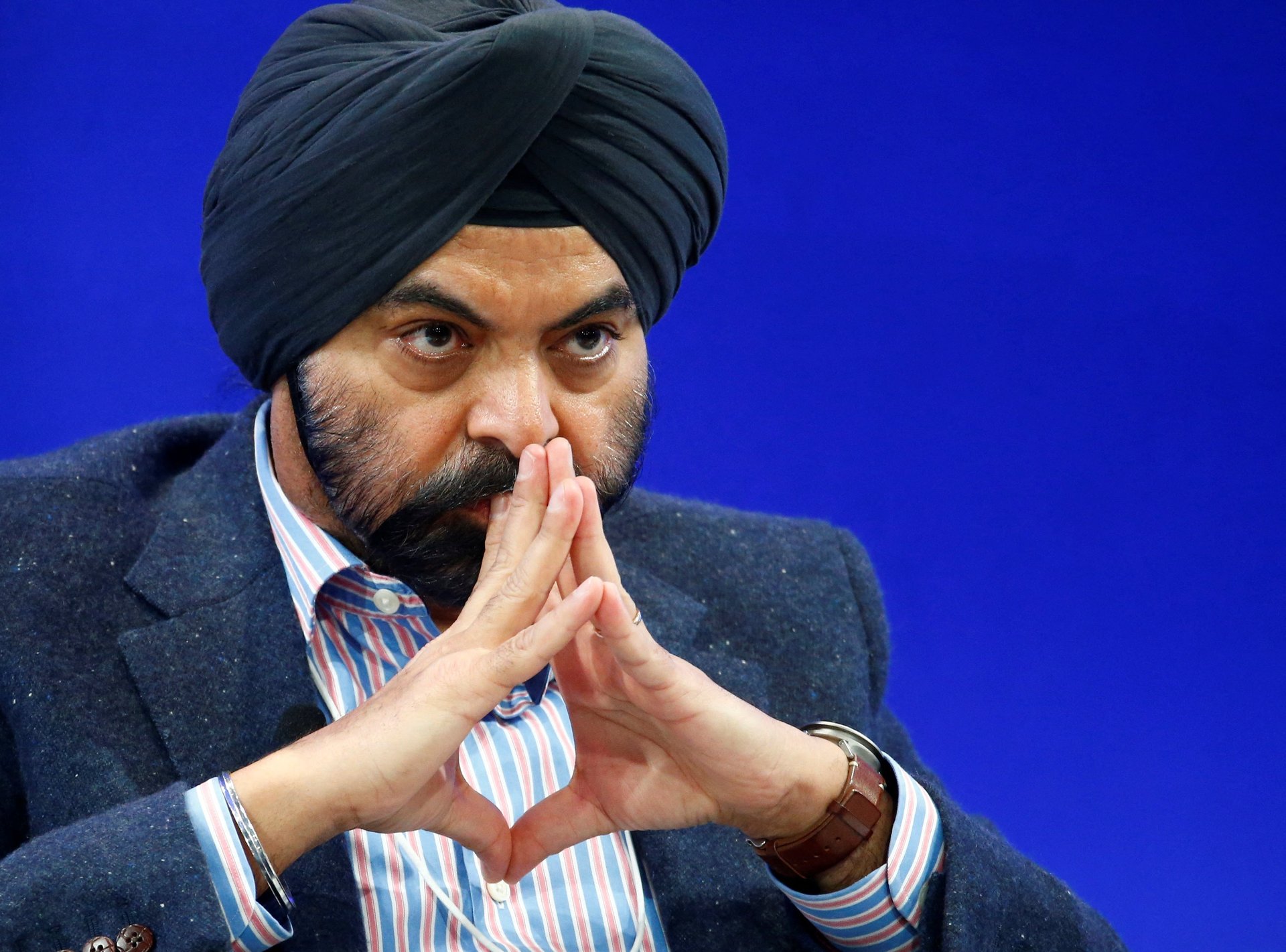Ajay Banga will have to fight the US government if he wants an effective World Bank
The US is the World Bank's richest shareholder—but also an obstacle to the bank serving the globe

The World Bank is facing extreme financing challenges as it aims to lift countries out of poverty while mitigating the impact of climate change. In that struggle, developing countries are instead turning to private lenders for exorbitant loans, or to lenders such as China, which is unforgiving toward its debtors.
The World Bank, its critics say, must now either step up to serve the world or let its relevance wane. That task will fall to its next president—likely to be Ajay Banga, the former Mastercard CEO tapped by the Biden administration.
For some time the US has been urged to appoint, as the president of the bank, someone who is not an American man—a woman from an emerging economy, ideally. Banga, unfortunately, is not that nominee. He was born in India, but he became a US citizen in 2007.
As the World Bank’s richest shareholder, the US has enjoyed holding veto power (a higher than 15% share) over some of the bank’s positions. But at a time when the bank needs more funding, the US has been unwilling to allocate more money to the bank’s loan book or to give more grants to countries in need.
“That is not the World Bank’s fault,” Charles Kenny, an economist and a senior fellow at the Center for Global Development, told Quartz. “That’s about US domestic politics,” or about a split Congress unwilling to add funding to the multilateral bank.
“Frankly, the administration just needs to put its political muscle behind getting it done,” Kenny said. “And so I would hope that a new World Bank president would say to the administration, ‘You need to get this done.’”
Where does the World Bank get its money?
Nations who are shareholders in the World Bank pledge money or guarantees of money to the bank, to be kept as reserve capital. Like any other bank, the World Bank then lends out more than it has in its reserves. It does this by borrowing against its reserve capital in international capital markets.
To become a better lender than private lenders, however, the World Bank is going to need to grow three to five times the size it is now, Homi Kharas, a senior fellow in the Center for Sustainable Development, told Brookings.
The next president of the bank should ask wealthy countries to give more money and show that every dollar given can be used more effectively than if it were spent by a single government, wrote Ngaire Woods, Dean of the Blavatnik School of Government at the University of Oxford, in Project Syndicate. But he or she must not be beholden to the White House; rather, the president must use the position to educate and influence US officials who do not fully grasp the bank’s value.
The World Bank can expand its balance sheet somewhat just by taking on more risk. Both the bank and the International Monetary Fund (IMF) have to shift their risk model so as to recognize that the primary reason poor countries get into trouble is not because of their own financial recklessness but because of the poor decisions of rich countries, such as fossil fuel pollution, Kenny said.
World Bank loans should come with fewer conditions, Kenny said. “Terms should be easier. Disbursements should be faster than they have been.”
What will Ajay Banga bring to the World Bank?
The World Bank also needs to scale up private financing, to undertake large investments that can make big changes, Kharas said. One of Banga’s biggest challenges as president would be to make the World Bank relevant in middle-income countries, which have increasingly turned to bond markets for financing. But bond markets can be volatile and they don’t provide the advice the World Bank can offer with the loans.
Banga would also have to battle China in bringing debt relief to poor countries. In the years following the arrival of covid-19, China has been reluctant to grant loan write-downs or to restructure debts.
But if the US can make vetoes harder and perhaps even forfeit its own veto power, it may be able to help the bank stare down the day when China’s shareholder status surpasses 15% and it gains veto power. In this way, the US could offer an alternative to China’s predatory lending, Kenny said.